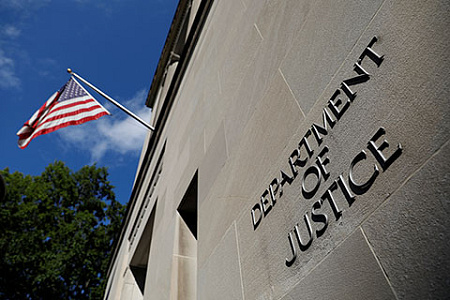
A leaked U.S. Department of Justice memo has revealed a proposal to dramatically expand the government’s authority to strip naturalized Americans of their citizenship. The plan, which aligns with President Donald Trump’s hardline anti-immigration policies during his second term, suggests that any foreign-born citizen could be targeted for denaturalization based on a wide range of offenses or simply for being deemed a potential national security risk.
The internal document, reportedly authored by Deputy Associate Attorney General Brett Shumate, proposes moving far beyond the current constitutional grounds for citizenship revocation, which are largely limited to cases of fraud or deliberate misrepresentation during the naturalization process. The new criteria would encompass a broad list of crimes, including financial fraud, human trafficking, violent or sexual offenses, and any involvement in torture, war crimes, or human rights violations.
Most controversially, the memo suggests that an individual’s citizenship could be revoked if the Justice Department simply deems them a “potential danger” to the country, a vague standard intended to cover terrorism, espionage, or similar activities. The proposal also includes a catch-all provision, granting the DOJ’s Civil Division the discretion to pursue cases that fall outside these categories, a move that critics argue gives the federal government immense and unchecked power.
While the memo’s current operational status is unknown, it has ignited alarm among legal experts and human rights advocates. They warn that such a policy would effectively create a second-class status for all naturalized citizens, whose rights would be less secure than those of native-born Americans. A key concern is the plan to process these cases in civil court, which requires a lower burden of proof for the government and does not guarantee the accused a state-provided attorney, severely undermining due process.
This initiative appears to be an extension of a trend that began in Trump’s first term. In 2018, U.S. Citizenship and Immigration Services began referring a far greater number of denaturalization cases to the DOJ, a sharp departure from previous decades. According to the Immigrant Legal Resource Center, the government pursued an average of only 11 such cases annually from 1990 to 2017, a number that has since risen dramatically.
Analysts note that this aggressive posture is part of a dual approach to immigration, which combines a crackdown on unauthorized migrants with programs that welcome wealthy investors. If the policy outlined in the memo is adopted, it could set the stage for a major conflict between federal and state governments. Observers predict that states with large immigrant populations and Democratic leadership, such as California, would likely seek legal and administrative means to resist the federal directive, mirroring past state-level opposition to sweeping federal reforms.
